I was planning to write a review of the new King Kong movie, but while wandering around the net looking for movie pics, I stumbled upon
Roger Ebert's excellent review. Here's an exerpt, and I've added some personal comment at the bottom:
##spoilers##
(I know it's a remake, but he does mention some crucial differences between the new and old movies)
Ebert's review:
There are astonishments to behold in Peter
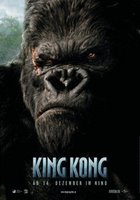
Jackson's new
King Kong but one sequence, relatively subdued, holds the key to the movie's success. Kong has captured Ann Darrow and carried her to his perch high on the mountain. He puts her down, not roughly, and then begins to roar, bare his teeth and pound his chest. Ann, an unemployed vaudeville acrobat, somehow instinctively knows that the gorilla is not threatening her but trying to impress her by behaving as an alpha male -- the King of the Jungle. She doesn't know how Queen Kong would respond, but she does what she can: She goes into her stage routine, doing backflips, dancing like Chaplin, juggling three stones.
Her instincts and empathy serve her well. Kong's eyes widen in curiosity, wonder and finally what may pass for delight. From then on, he thinks of himself as the girl's possessor and protector. She is like a tiny beautiful toy that he has been given for his very own, and before long, they are regarding the sunset together, both of them silenced by its majesty.
The scene is crucial because it removes the element of creepiness in the gorilla/girl relationship in the two earlier "Kongs" (1933 and 1976), creating a wordless bond that allows her to trust him. When Jack Driscoll climbs the mountain to rescue her, he finds her comfortably nestled in Kong's big palm. Ann and Kong in this movie will be threatened by dinosaurs, man-eating worms, giant bats, loathsome insects, spiders, machineguns and the Army Air Corps, and could fall to their death into chasms on Skull Island or from the Empire State Building. But Ann will be as safe as Kong can make her, and he will protect her even from her own species.
The movie more or less faithfully follows the outlines of the original film,

but this fundamental adjustment in the relationship between the beauty and the beast gives it heart, a quality the earlier film was lacking. Yes, Kong in 1933 cares for his captive, but she doesn't care so much for him. Kong was always misunderstood, but in the 2005 film, there is someone who knows it.
As Kong ascends the skyscraper, Ann screams not because of the gorilla but because of the attacks on the gorilla by a society that assumes he must be destroyed. The movie makes the same kind of shift involving a giant gorilla that Spielberg's "Close Encounters of the Third Kind" (1977) did when he replaced 1950s attacks on alien visitors with a very 1970s attempt to communicate with them (by 2005, Spielberg was back to attacking them, in
War of the Worlds.
King Kong is a magnificent entertainment. It is like the flowering of all the possibilities in the original classic film. Computers are used not merely to create special effects, but also to create style and beauty, to find a look for the film that fits its story. And the characters are not cardboard heroes or villains seen in stark outline, but quirky individuals with personalities.
Consider the difference between Robert Armstrong and Jack Black as
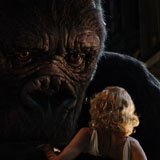
Carl Denham, the movie director who lands an unsuspecting crew on Skull Island. A Hollywood stereotype based on C.B. de Mille has been replaced by one who reminds us more of Orson Welles. And in the starring role of Ann Darrow, Naomi Watts expresses a range of emotion that Fay Wray, bless her heart, was never allowed in 1933. Never have damsels been in more distress, but Fay Wray mostly had to scream, while Watts looks into the gorilla's eyes and sees something beautiful there.
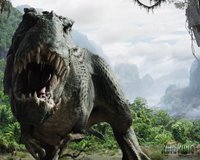
Jackson, fresh from his "Lord of the Rings" trilogy, wisely doesn't show the gorilla or the other creatures until more than an hour into the movie. In this he follows Spielberg, who fought off producers who wanted the shark in Jaws to appear virtually in the opening titles. There is an hour of anticipation, of low ominous music, of subtle rumblings, of uneasy squints into the fog and mutinous grumblings from the crew,

before the tramp steamer arrives at Skull Island -- or, more accurately, is thrown against its jagged rocks in the first of many scary action sequences.
My part:
As Ebert goes on to explain, the movie has three distinct parts. The first introduces us to the human characters. It gives us time to know them and reveals their works, their passions, and their weaknesses. I thought this movie was beautifully cast, with one exception. Jack Black is adequate as Carl Denham, but there are lines he just doesn't have the emotional range to deliver, and it shows (thankfully not too often).

The second part of the movie is set on Skull Island, and once the rollercoaster ride begins it doesn't let up. The special effects here are astounding, and it is this part that makes Kong a movie that must be seen on the big screen.
Let me just repeat that: A MOVIE THAT MUST BE SEEN ON THE BIG SCREEN!!!
If you wait to see this on DVD, you will never grasp just how

astounding a 25-ft gorilla fighting a T-rex or 3 can be. These are massive creatures (plus the scenery, plus everything else) and it's only on the big screen, with all that lovely Dolby surround sound, that they can be delivered to you in all their glory. I'm
definitely seeing this again before its cinema run ends.
The final third of the movie tore my heart out - just as Jackson intended it to. Kong: the 8th Wonder of the World is revealed, drugged and chained, to an eager public. He escapes of course, and is eventually taken down in the style of Kongs past, on top of the Empire State Building. Just before that though he finds Ann, and there is a magical scene with the two of them playing on the ice of a frozen pond ~ a scene made more poignant by the fact that you know it can't last. From the moment Kong refuses to be controlled, he's doomed.
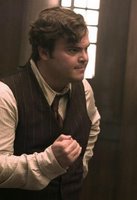
That famous last line at the end of the movie, 'It was beauty killed the beast', is so false. True they could never have captured him had he not been so enamoured with Ann, but vulnerability doesn't kill you if there's no-one waiting to take advantage of it. It was greed, and a vicious disregard for Kong as anything more than a means to an end, that really 'killed the beast'. This is no chick flick, but if you don't cry at least once, you're a heartless bastard/wench and no mistake.
Loved it! 4-and-a-half stars
 You know, being terribly sensible and cooperative types, Phi and I really don't have a lot of official house rules. So you'd think that the boy would be able to remember and follow those few rules without having to be reminded.
You know, being terribly sensible and cooperative types, Phi and I really don't have a lot of official house rules. So you'd think that the boy would be able to remember and follow those few rules without having to be reminded.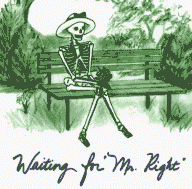






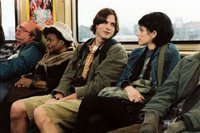

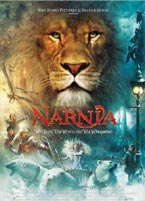

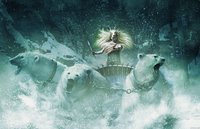

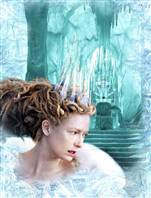




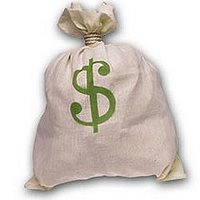










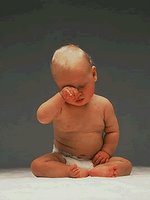


 What does your brain say about how you think and learn?
What does your brain say about how you think and learn?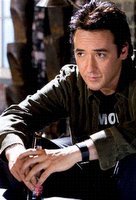




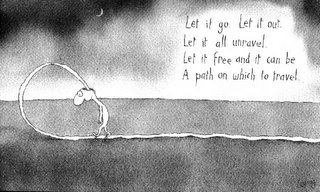
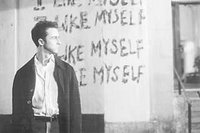
 Q posted
Q posted 

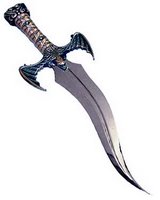


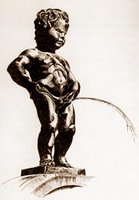 Call of nature saves man from garbage crusher
Call of nature saves man from garbage crusher



